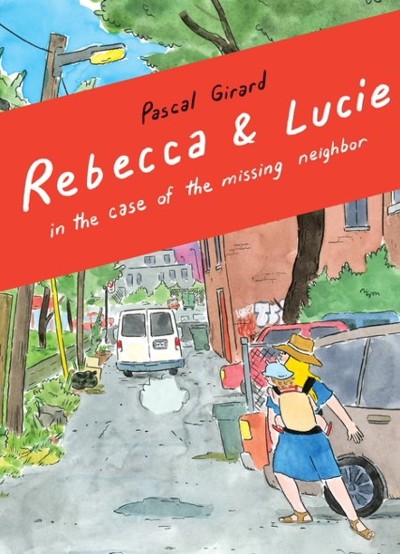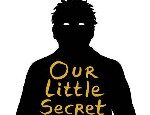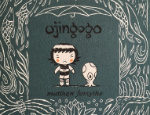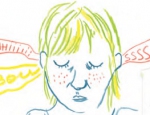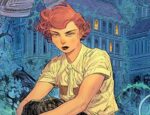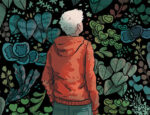There’s almost always an element of doubt that creeps into the mind of a reader looking through the work of Pascal Girard. It is a healthy kind of doubt; one that compels you to sit up and pay close attention for fear of missing out on overtones that lie just beyond your reach. One suspects the Quebec-born cartoonist knows this as well, and encourages it, by letting elements of his own life seep into his stories in just the right doses. The result is a sort of dreamscape that hovers between a good old-fashioned story and a philosophical comment on life itself.
Take Rebecca and Lucie In the Case of the Missing Neighbor. The names come from Girard’s personal life, as do several scenes involving caring for a baby and navigating the emotional minefield that is motherhood. It is the missing neighbour and resultant detective work that tips over into fiction, creating a light-hearted, fun tale that makes for perfect summer reading on a lazy afternoon.
It all revolves around the disappearance of a neighbour named Eduardo Morales who has been working for the Simard family in Rebecca’s neighbourhood. She has eight-month old Lucie to take care of but can’t resist the lure of poking and prying around to find out where Morales has gone and if things are more serious than they seem. Her detective work is complicated by everyday obstacles thrown into the path of every new mother, involving kegels, daycare centres, diaper duties, and the very real spectre of postpartum depression.
Girard’s watercolours are a joy to behold, little pockets of self-contained joy so radically at odds with the black-and-white panels that marked much of his earlier work like Reunion, Petty Theft, or the minimalist Nicolas. The one common thread is how he approaches his drawings of people, deceptively simple caricatures that retain the ability to reflect subtle emotions with the lightest lines and curves.
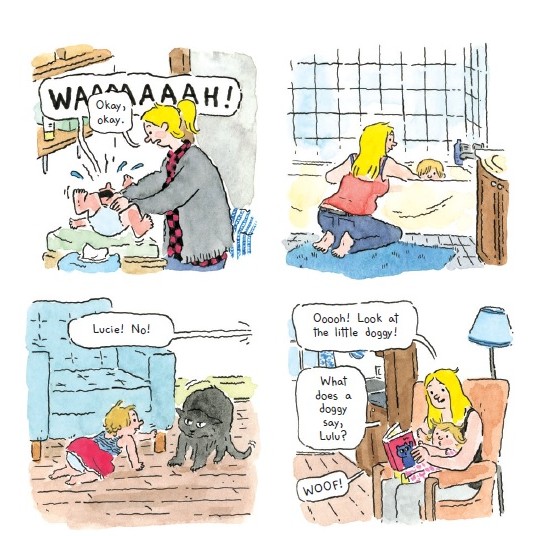
Aleshia Jensen’s work as a translator here is uncomplicated, given how the dialogue rarely strays from the straightforward, be it interactions between Rebecca and a detective or conversations between women at a yoga class. This is part of what makes the book take on a soothing quality: everything seems so normal, that the idea of a crime playing out in the background almost seems like an anomaly.
A good detective story supposedly relies upon five basic elements: A well-rounded detective as protagonist, the central crime itself, an array of suspects that serve as red herrings for readers to go down blind alleys, an antagonist who doesn’t necessarily have to be the criminal, and a setting that can often enhance the whole package. By this yardstick, Girard does a great job, ticking all these boxes while retaining a sense of playfulness that exploits the medium he chooses to work with.
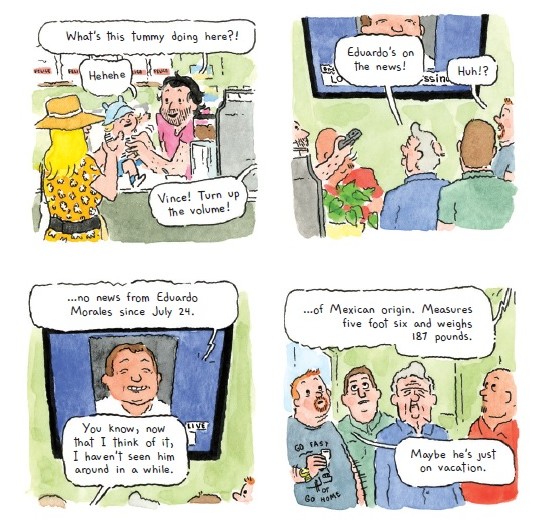
The delicate humour is what gives his light book heft, along with the intrusion of class concerns that creep into the narrative as it all comes to a close. It makes for a book that may be short, but is still a great addition to any bookshelf. As a writer, illustrator, and colourist, Girard continues to grow. We should simply be grateful.
Pascal Girard (W/A), Aleshia Jensen (T) • Drawn & Quarterly, $24.95 CAD/$21.95 USD
Review by Lindsay Pereira





